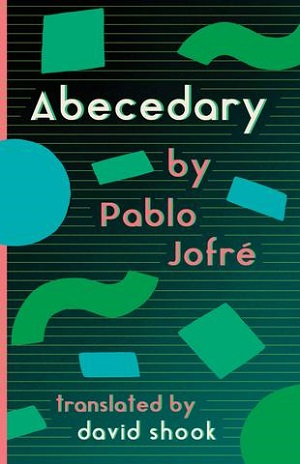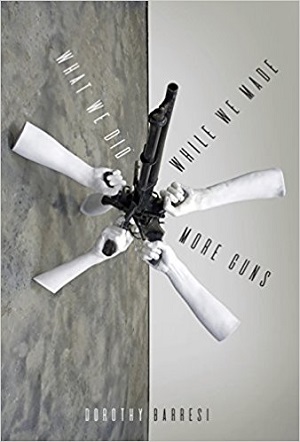 Orange Lady, by Erika Ayón
Orange Lady, by Erika Ayón
Review by Brian Dunlap
How does a place look? How does it feel? How does it smell? Who lives there? What makes up the lives of the people who live there? What is the history of that place or the history of the people who live there?
These are many of the concerns writers of place address as they try to better understand where they’re from or where they live or explain to others what that place is truly like, to get beneath the pervasive stereotypes.
William Faulkner in his novel Absalom, Absalom! dives beneath and explores the myths his fellow Southerners have steeped their southern history of slavery and plantation culture in. At one point he describes a character “escaped at last into a world of pure illusion in which, safe from any harm, she moved, lived, from attitude to attitude.”
John Steinbeck in the opening to Cannery Row says that section of Monterey, California back in the 1930s and 1940s “is the gathered and scattered, tin and iron and rust and wood, chipped pavement and weedy lots…sardine canneries of corrugated iron, honky tonks…laboratories and flophouses.”
And L.A. writer Stephen D. Gutierrez reminds readers about his South L.A. city in “Harold, All American,” that “Bell Gardens was a dilapidated town on the edge of L.A., all Okie then, with a smattering of Mexicans, wetbacks and surfer types, enlivening it.”
Los Ángeles is a city that begs to be written about. Writers since the first Spanish visitors have attempted to explain what Southern California, and later, Los Ángeles is, exploring its landscapes, then built environments, usually in relation to its inhabitants. Since the Black Arts Movement of the 1960s and early 1970s, Los Ángeles literature is increasingly written by people born and raised there or by people who have a stake in the city. As a result, the literature has increasingly focused on the people that live in L.A.
Insert the debut poetry collection Orange Lady by Erika Ayón. She essentially writes a memoir in verse about growing up in South Central Los Ángeles, around 23rd and San Pedro Street, after immigrating to the U.S. from Mexico with her father, after kindergarten. Most of the poems are moments in time; a memory of herself, Apá, Amá, her sister Lorena, some of the characters that populate the neighborhood, of her family’s situation. It’s very much a collection of who they are and by extension who and what her South Central is.
The first poem “An Honest Living” does an excellent job setting the context that Orange Lady is read in. “Orange lady! Orange lady!” the opening line reads in part, already addressing the meaning of the collection’s title. Ayón is in elementary school and is picked on because her Mexican family sells oranges and other fruit curbside to make a living, a reality I’ve seen all my life living in L.A. But as Ayón reminds herself and the reader, pushing back against the narrative that Mexicans are not honest people (e.g. drug dealers), she says, “Apá’s words float in my mind, stop me from/crying, from saying it isn’t true. It’s an honest living, nothing/to be ashamed of.”
These poems, as “An Honest Living” illustrates, are poems of experience. Ayón writes her life, through a Mexican immigrant’s eyes, shifting the perspective in which L.A. is seen. In “The Ride There,” she situates her memories by saying:
…a slow ride down San Pedro
…the streets stand desolate…
Numero Uno Market sees
no cars in sight…
The white button moon follows me…
Apá…
stares at the darkness that swallows the road ahead.
These South Central streets reflect the situation her family, and others like her, face: economic instability in a complex, racist country they’re struggling to understand, forcing them to navigate it blindly.
It’s through Ayón’s use of clear, plain language that her memories are able to just be, showing tenderness towards Apá in “Each Fall,” when he leaves to pick fruit, but returns to “whisper/about../how the strawberries bleed into your cut,/blistered hands.” Or through heart-break in “The Police Officers,” when Apá sells fruit and goods curbside and “mean police officers,” ask to see his vender’s license, “purchased with…assurance…/the…officers will leave us alone.” Instead they “tell Apá ‘You can’t be here…’/They snap/his picture as if he were a criminal.”
However, with the poem “In Another Country” Ayón completes the reader’s full envelopment into her perspective through the somber retelling of her immigration story written from the perspective of Mexico to her daughter. It’s at the end when her family finally reaches L.A. when the stark, heartbreaking reality of her experience is laid bare: “…she shakes/the last memories of me…/in the distance, I sigh, release/her forever from my embrace.”
Later, when Ayón is older, she ponders her perspective in “The Train Ride With Billy Collins,” about “if Billy feels that these trees are also/like poems. That those vibrant red/strawberries are planted poems,” insinuating that she hopes her perspective, story and community, and those of people like her, won’t be cast to the side by the white men/poets that Collins represents, as different or outside what the “definition” of a poem, story, life or community is. However, since it’s Ayón’s desire to, as she says, “loose ourselves in this/” her “world,” the fact that she italicizes Spanish words throughout Orange Lady, unnecessarily otherizes her perspective, to a degree, inserting a barrier between English and Spanish that are both a normal part of her world.
Yet, Ayón’s world, her Los Ángeles, is one that writers—a visiting Truman Capote and L.A. writers like Raymond Chandler and Joan Didion—could never conceive of, that left the Mexican/Latinx immigrants out of the city’s narrative. However, even with the occasional overuse of short words like “the” that causes a line here and there to be wordy, interrupting the rhythm of a poem, and the italicizing of Spanish words, her last poem “Elegy for the Orange,” brings Ayón’s memoir in verse touchingly full circle. She says, “Your juice became my childhood nectar…” And she understands “I won’t be your last survivor.” And that’s a reality the reader should never forget.
Orange Lady is available now through World Stage Press.
Brian Dunlap is a native Angeleno who still lives in Los Angeles. He explores and captures the city’s stories that are hidden in plain sight. Dunlap is the winner of the 2018 Jeff Marks Memorial Poetry Prize from december magazine judged by former Los Angeles Poet Laureate Luis J. Rodreguez. His poems and book reviews have been published in Angel City Review, CCM-Entropy, California Quarterly and Dryland, among others. He runs the blog site www.losangelesliterature.wordpress.com, a resource to explore L.A.’s vast literary culture.

 Calling a Wolf a Wolf
Calling a Wolf a Wolf Cadavers, by Néstor Perlongher
Cadavers, by Néstor Perlongher Abecedary
Abecedary What We Did While We Made More Guns
What We Did While We Made More Guns I Love It Though by Alli Warren
I Love It Though by Alli Warren There Are More Beautiful Things Than Beyonce,
There Are More Beautiful Things Than Beyonce, Hover the Bones, By Melisa Malvin-Middleton
Hover the Bones, By Melisa Malvin-Middleton Third-Millennium Heart, by Ursula Andkjaer Olsen
Third-Millennium Heart, by Ursula Andkjaer Olsen The World Goes On, by Laszlo Krasznahorkai
The World Goes On, by Laszlo Krasznahorkai Djinn City, by Saad Z. Hossain
Djinn City, by Saad Z. Hossain Collection by Roger Santiváñez
Collection by Roger Santiváñez